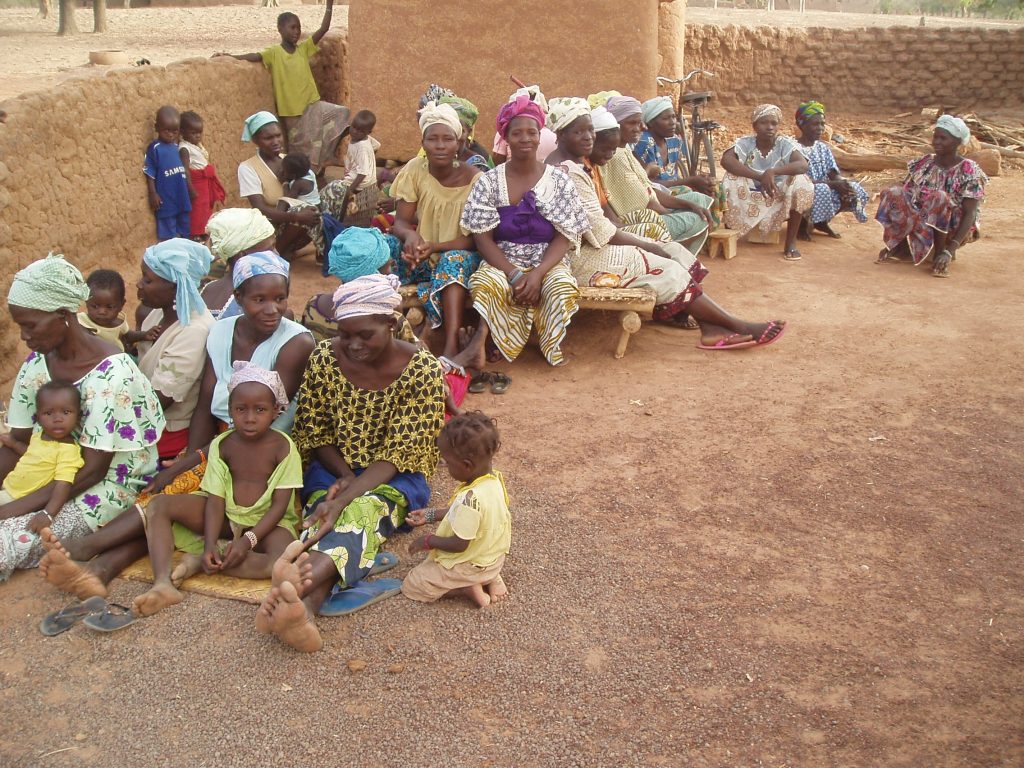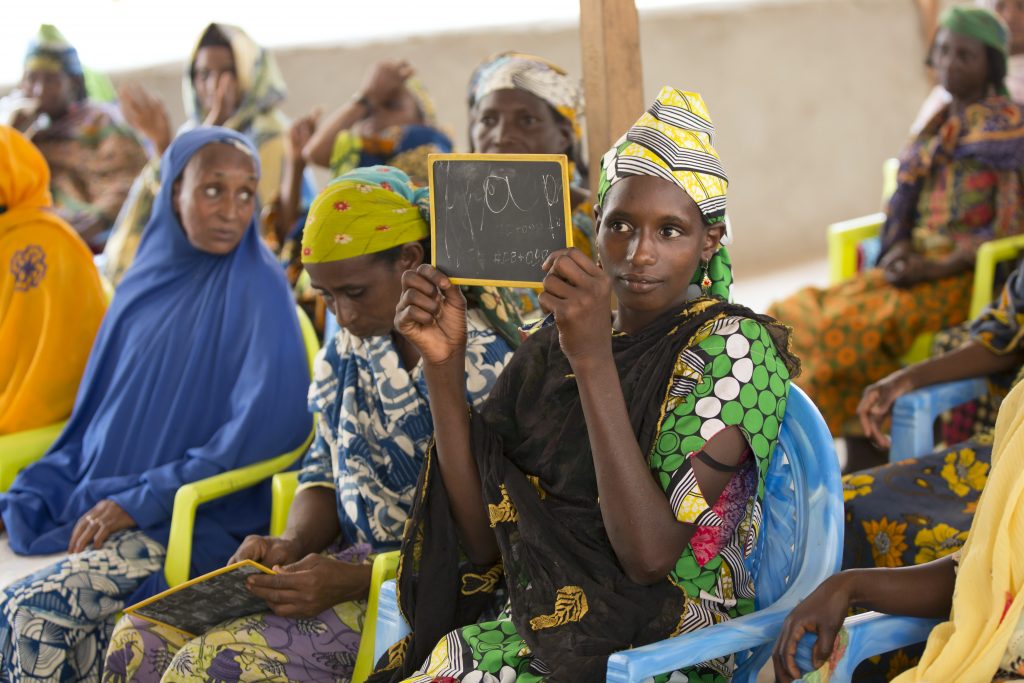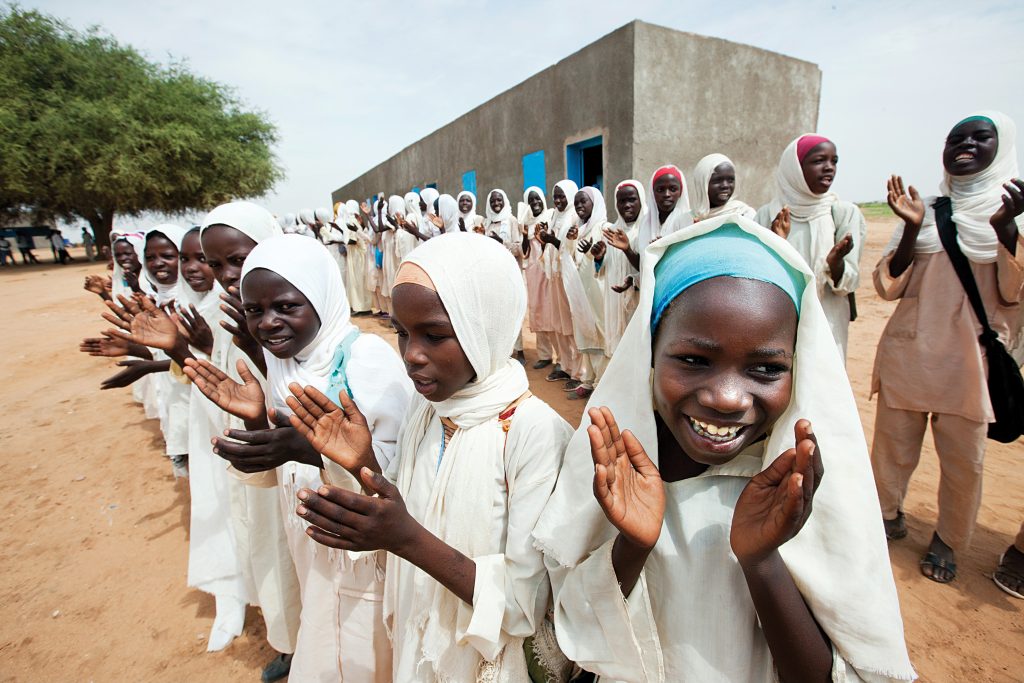By Elsa Sichrovsky
In my comfortable first-world life, information is just a swipe away. Whenever I want to know something, I just pull out my smartphone and start typing a question into Google. Immediately, a plethora of helpful information fills the screen. If I need counseling, support, or treatment, the internet makes endless resources available to me.
But for women in Niger, most of whom have never had the opportunity to receive an education, the sole sources of information are their fathers, husbands, and male religious leaders. Although Niger’s male literacy rate of 27.3% is higher than the female literacy rate of 11%[1], it still means that the information about women’s issues that Nigerien men have available to pass on to women is very limited. In a country where radio and television are luxuries inaccessible to rural communities, many families are unaware of medical and social services such as contraception and family planning that can improve the quality of life for women and children.

In 2018, UNPFA (United Nations Population Fund) launched a project that partnered with more than 50 female Muslim clerics like Malama Ouani to provide weekly classes about reproductive health, family planning, and women’s rights from an Islamic perspective. In a country that is more than 99% Muslim, Malama Ouani has a powerful message to deliver: she believes that family planning and the right of women to be safe and educated do not conflict with Islamic beliefs.
In a blog article, Malama Ouani points out the common misconception that society’s oppression of women is endorsed by Islam: “I know this is not the will of god or our government. It merely reflects a failure so old that it seems as if it has always been the case.”[2] In her women’s study groups, called madrassas, Malama Ouani teaches women that caring for their personal health and well-being is a religious obligation: “How do you want to be consistent in your religious practice and your adorations if you are sick all the time?”[3]

One essential way to improve women’s health is to practice family planning. Niger has one of the highest birth rates in the world[4], and many women have been taught that Islam does not approve of spacing births. However, family planning allows the mother’s body to recover after giving birth, which helps her to be a stronger, healthier mother for the children she already has. Malama Ouani tells women they can chose a different path from what they have been raised with: “I tell the women, I am a Muslim cleric, and I have three children – each born roughly three years after the next (currently ages 5, 8, and 12). I did not have 10 children like my mother because I used family planning methods.”[5]
With a vision for the future, Malama Quani urges women to send their girls to school so they can become medical professionals who can make medical examinations more comfortable and easily accessible for Nigerien women. She refutes the notion that knowledge can only be held in the hands of men: “The quest for knowledge is an obligation for every Muslim.”[6]
Women have responded enthusiastically to Malama Quani’s instruction. She describes how women gradually process the concepts that she teaches : “ A woman one week will ask about family planning. And then next week, she might be bold enough to ask me what I use. And then next week, she might ask some questions about how it works. Some women then might take this information back to their husbands to talk about what their family might look like if they planned their pregnancies.”[7] Other women announce plans to visit their local health centers or ask Malama Quani how they can enroll their daughters in school.

Wells Bring
Hope shares Malama Quani’s vision for educating women and girls about their
rights so they may enjoy a higher quality of life. With microfinance classes
and hygiene education, women have a chance to escape the cycle of poverty and
build a brighter future for their daughters. Most essentially, having an
accessible well in their village means that girls who no longer have to walk
for water can remain in school and get an education, which will leave them
empowered to make thoughtful decisions about their health and futures. Best of
all, anyone can be a part of it by donating or volunteering for Wells Bring
Hope!
[1] https://www.cia.gov/library/publications/the-world-factbook/geos/ng.html
[2] https://www.one.org/africa/blog/they-cant-google-so-they-ask-me-about-their-rights/
[3] https://www.unfpa.org/news/female-islamic-preachers-call-womens-rights-contraception-niger
[4] https://www.cia.gov/library/publications/the-world-factbook/fields/345rank.html#NG
[5] https://www.one.org/africa/blog/they-cant-google-so-they-ask-me-about-their-rights/
[6] https://www.unfpa.org/news/female-islamic-preachers-call-womens-rights-contraception-niger
[7] https://www.one.org/africa/blog/they-cant-google-so-they-ask-me-about-their-rights/


